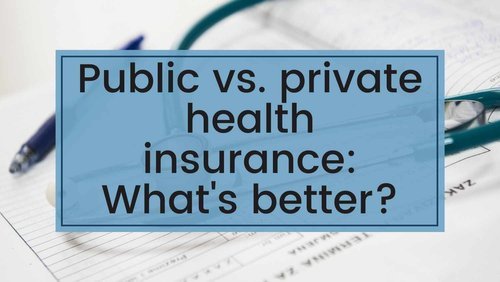
Introduction
Understanding Private and Public Health Insurance
Private Health Insurance: Private health insurance is coverage provided by private companies, either through employer-sponsored plans or individual policies. It often offers a broader range of services, including specialist care, faster access to treatments, and private hospital accommodations.
Public Health Insurance: Public health insurance is government-funded and designed to provide essential healthcare services to citizens. Programs such as Medicare, Medicaid, and nationalized healthcare systems (like the NHS in the UK or Canada’s universal healthcare) ensure that healthcare remains accessible to all, regardless of income level.
Key Differences Between Private and Public Health Insurance
| Feature | Private Health Insurance | Public Health Insurance |
|---|---|---|
| Cost | Higher premiums, co-pays, and deductibles | Lower or no premiums, but funded through taxes |
| Access to Care | Faster access to specialists and elective procedures | Longer wait times for non-urgent care |
| Choice of Providers | More flexibility in choosing doctors and hospitals | Limited to government-approved facilities and doctors |
| Coverage | Comprehensive, including dental, vision, and elective procedures | Covers essential medical needs but may lack additional benefits |
| Quality of Service | High-quality care with shorter waiting times | Quality care but potentially longer wait times and resource limitations |
| Eligibility | Available to those who can afford it or have employer-sponsored plans | Available to all eligible citizens, often based on income and residency |
Pros and Cons of Private Health Insurance
Pros:
- Faster access to specialists and elective treatments
- More choices in healthcare providers and facilities
- Additional services such as dental, vision, and alternative medicine
- Higher quality of service and private accommodations
Cons:
- Higher costs, including premiums, deductibles, and co-pays
- Can be expensive without employer support
- Potential for coverage denial based on pre-existing conditions (depending on regulations)
Pros and Cons of Public Health Insurance
Pros:
- Universal access to essential healthcare services
- Lower financial burden due to government funding
- No exclusion based on pre-existing conditions
Cons:
- Longer wait times for non-urgent medical care
- Limited access to specialists without referrals
- Less flexibility in choosing doctors and facilities
Which is Best?
The choice between private and public health insurance depends on several factors, including income, health conditions, and personal preferences.
- For individuals seeking comprehensive coverage, faster service, and greater flexibility, private health insurance may be the better option.
- For those who prioritize affordability and accessibility, public health insurance provides essential coverage without significant financial strain.
In many cases, a combination of both systems works best. Some countries offer hybrid models where citizens can supplement public insurance with private coverage for enhanced benefits.
Conclusion
There is no one-size-fits-all answer to whether private or public health insurance is superior. The best option depends on an individual’s healthcare needs, financial situation, and personal preferences. Understanding the differences between these two types of insurance helps individuals and families make informed decisions about their healthcare coverage.


